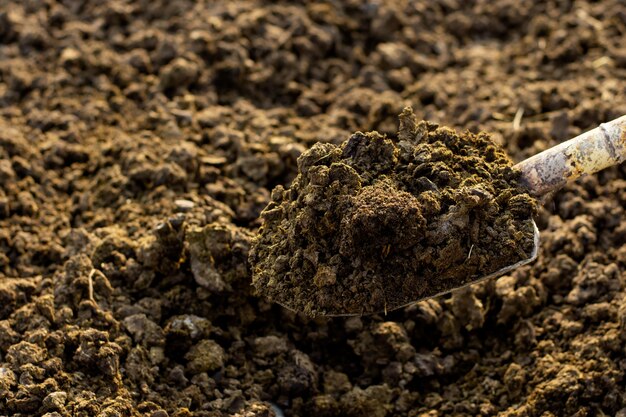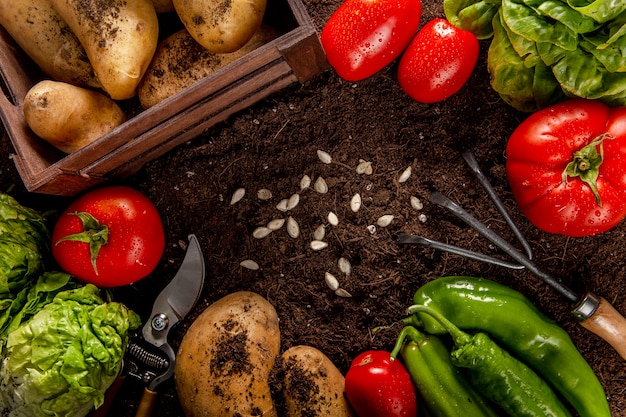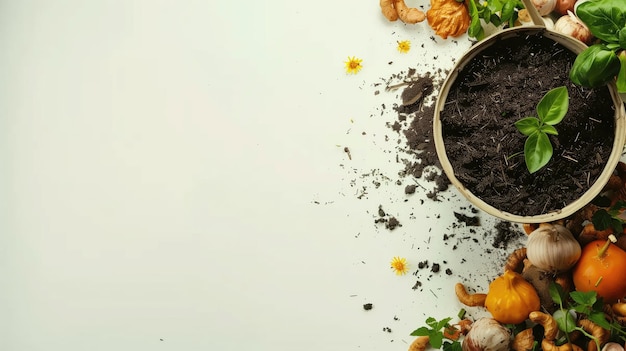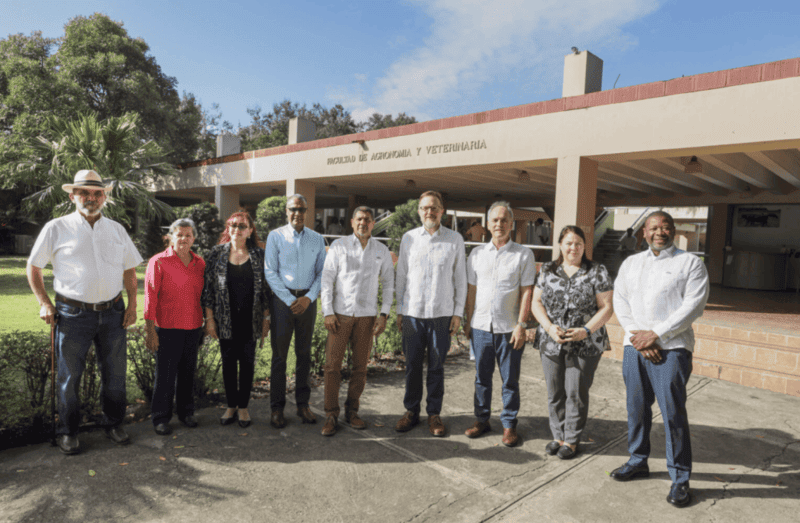US Backs Organic Fertilizers Efforts to Increase Use of Organic Fertilizers in the Dominican Republic
Summary of Key Points:
- The US Government, through USAID, is pushing for the increased use of organic fertilizers in the Dominican Republic.
- The program aims to improve soil yields and incorporate climate-smart agricultural practices.
- This initiative is a response to global supply chain disruptions and price instability due to the Russian invasion of Ukraine and the Covid-19 pandemic.
- The goal is to boost local production, create jobs, and enhance self-reliance in the Dominican agricultural sector.
- Expect a blend of humor, insightful analysis, and engaging discussion in this deep dive into the topic.

US Government Backs Efforts to Increase Use of Organic Fertilizers in the Dominican Republic
Welcome, dear readers! Today, we’re about to embark on an enlightening and hilarious journey through the world of organic fertilizers, soil yields, and resilient agriculture. Buckle up for a rollercoaster of facts, figures, and fun as we delve into the recent efforts backed by the US Government to boost organic fertilizer use in the Dominican Republic. If you’re in a hurry, just skim the summary above – but trust me, you’ll want to stick around for the full story!
Introduction: The Fertile Grounds of Discussion
Hey folks, We’ve got a real treat for you today! We’re diving into the fascinating topic of the US Government’s efforts to boost the use of organic fertilizers in the Dominican Republic. Get ready for a mix of humor, facts, and a bit of chutzpah as we guide you through this green initiative.

Scenario: Unveiling the Green Revolution
Picture this: The US Embassy and the Ministry of Agriculture join forces, presenting the new Resilient Agriculture Program. Their mission? To enhance soil yields, improve fertilizer use, and promote local production of organic fertilizers in the Dominican Republic. It’s like a superhero team-up, but with compost and cow manure!
Context: Seeds of Forum Wisdom
Let’s dig into some golden nuggets from the forum, where users shared their thoughts on this initiative. Spoiler alert: it’s a fertile ground for lively debate and witty commentary.

User Contribution 1: Fertilizer Frenzy (Feb 9, 2023)
One user kicked off the discussion with an enthusiastic post about the benefits of organic fertilizers and the potential for increased self-reliance. They highlighted the impact of supply chain disruptions and the need for sustainable agricultural practices.
Witty Remark: “Looks like our veggies are going organic – not because it’s trendy, but because it’s essential!”
Answers 1: Soil Savvy Replies
The replies were a mixed bag of excitement, skepticism, and a dash of humor. Some users praised the initiative, while others wondered if organic fertilizers could really meet the demands of large-scale farming.
Insightful Answer: “Sure, organic is great, but can it handle the load? We need to make sure our crops don’t turn into prima donnas demanding VIP treatment!”

User Contribution 2: Green Dreams (Feb 9, 2023)
Another user chimed in, discussing the potential employment opportunities and the positive environmental impact. They emphasized the need for local production to reduce dependency on imports.
Witty Remark: “Imagine the job ads: ‘Wanted – Green Thumbs for Organic Fertilizer Production. Must love dirt and long walks through the compost heap.'”
Answers 2: Cultivating Conversations
Responses ranged from enthusiastic support to cautious optimism. Some users shared personal experiences with organic farming, while others debated the feasibility of widespread adoption.
Humorous Take: “Organic farming sounds great until you realize you’re basically running a bed-and-breakfast for earthworms.”
User Contribution 3: Organic Odyssey (Feb 9, 2023)
A third user delved into the technical aspects, discussing soil health, crop rotation, and the science behind organic fertilizers. They provided a detailed breakdown of the benefits and potential challenges.
Witty Remark: “Organic farming: where we feed the soil, not just the plants. It’s like cooking for your garden – with a recipe from Mother Nature herself.”

Answers 3: Fertile Feedback
The forum lit up with replies, ranging from technical insights to amusing anecdotes. Users shared tips, asked questions, and debated the finer points of organic farming.
Enlightening Answer: “Think of it this way – synthetic fertilizers are like fast food for plants. Organic fertilizers? That’s a gourmet meal, slow-cooked to perfection.”
Analysis and Insights: Digging Deeper
Alright, let’s get serious for a moment. The push for organic fertilizers is rooted in several key factors:
- Supply Chain Disruptions: The Russian invasion of Ukraine and the Covid-19 pandemic have wreaked havoc on global supply chains. By producing fertilizers locally, the Dominican Republic can reduce dependency on imports and stabilize prices.
- Sustainable Agriculture: Organic fertilizers are a cornerstone of climate-smart agriculture. They improve soil health, reduce environmental impact, and promote biodiversity.
- Economic Benefits: Local production of organic fertilizers creates jobs, boosts the economy, and fosters self-reliance.
- Food Security: By enhancing soil yields and promoting sustainable practices, the program aims to ensure long-term food security for the Dominican Republic.

Understanding the Cultural Context: Dominican Dynamics
The Dominican Republic has a rich agricultural tradition, and initiatives like this tap into that heritage. The program aligns with the government’s policies on consumer protection and food security, resonating with local values and priorities.
Communication: Fertilizing Discussions
Effective communication is key in promoting initiatives like this. The forum discussions highlight the importance of clear, engaging messaging. Users who shared personal stories and relatable examples garnered more support and engagement.
Compromise and Respect: Cultivating Harmony
Discussions about organic farming can get heated, but the forum showed the power of respectful dialogue and compromise. By acknowledging different perspectives and finding common ground, users fostered a productive and inclusive conversation.
Closing Thoughts: Harvesting Knowledge
And that’s it, folks! We’ve dug deep into the topic of organic fertilizers and the US Government’s efforts in the Dominican Republic. With a blend of humor, facts, and insights, we hope you’ve enjoyed this journey as much as we have. Remember, the goal is to create a community of engaged and informed readers, ready to tackle the challenges of sustainable agriculture with a smile.
FAQs: Sprouting Questions
How can I get more involved in online discussions?
- Join forums, share your experiences, and ask questions. Engaging with the community is the first step!
What are the best strategies for effective communication?
- Be clear, concise, and relatable. Use personal stories and examples to make your points resonate.
How do I recognize cultural nuances in forum posts?
- Pay attention to local values, traditions, and concerns. Understanding the cultural context is key.
What are the most common misunderstandings in online discussions?
- Misinterpretation of tone and intent. Always assume the best and clarify when needed.
How do I promote respect and compromise in forums?
- Be respectful, acknowledge different perspectives, and find common ground. It’s all about fostering a positive environment.
For more insightful articles and to join the discussion, visit dr1.com. If you’re an administrator or moderator interested in collaboration, please contact simonmarkusputz@gmail.com. We use forum data based on fair use and appreciate their work, providing backlinks to support the community.






